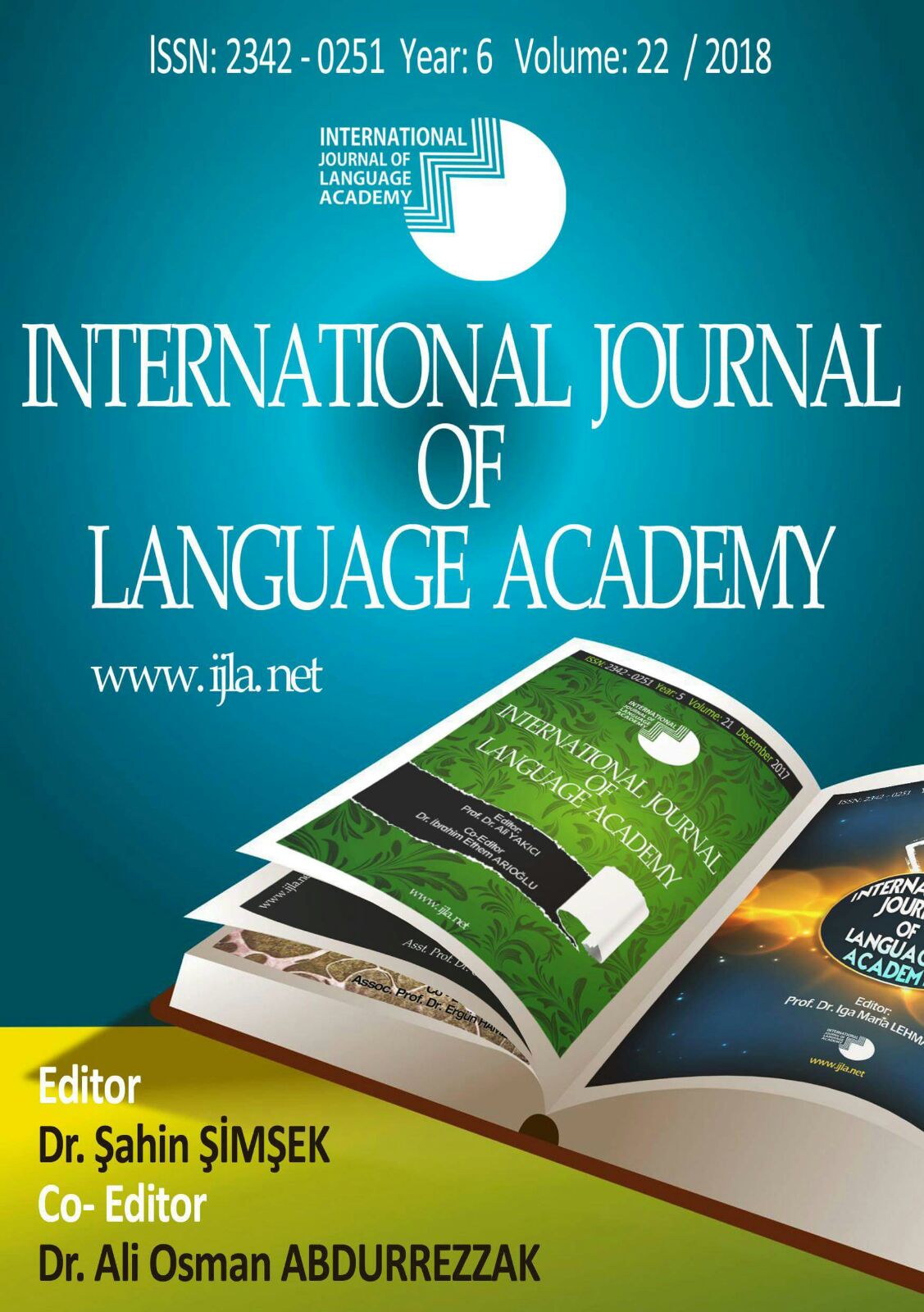ETKİLEŞİMSEL OKUMA MODELİNİ TEMEL ALAN TÜRKÇE ÖĞRETİMİNİN ÖĞRENCİLERİN BİLİŞSEL FAKINDALIK BECERİLERİ ÜZERİNE ETKİSİ
Author :
Abstract
Bu araştırmanın amacı da Etkileşimsel Okuma Modeli’ni temel alan Türkçe öğretiminin öğrencilerin bilişsel farkındalık becerileri üzerindeki etkilerini belirlemektir. Araştırma, 2016-2017 eğitim öğretim yılında Ankara ili Kızılcahamam ilçesindeki Orhangazi Ortaokulu ile İmam Hatip Ortaokulu’nda gerçekleştirilmiştir. Etkileşimsel Okuma Modeli’ne dayalı olarak planlanan programın uygulama süreci 11 hafta sürmüştür. Araştırmada, etkileşimsel okuma öğretiminin bilişsel farkındalık becerileri üzerindeki etkisini belirlemek için eşleştirilmiş ön test son test kontrol gruplu yarı deneysel desen kullanılmıştır. Araştırmaya 30 deney grubu, 30 da kontrol grubu olmak üzere toplam 60 altıncı sınıf öğrencisi katılmıştır. Araştırmanın verileri, okuma stratejileri bilişsel farkındalık ölçeği ve kişisel bilgi formu ile toplanmıştır. Kontrol grubunda mevcut öğretim programı uygulanırken, deneysel çalışmanın yapıldığı çalışma grubunda ise etkileşimsel okuma modeline dayalı hazırlanan bilgilendirici ve öyküleyici metinler ile etkinliklerden oluşan program uygulanmıştır. Ayrıca, okuma öğretiminde Etkileşimsel Okuma Modeli’ne işlerlik kazandıracak okuma strateji, yöntem ve tekniklerine de başvurulmuştur. Strateji, yöntem ve tekniklerin öğrenme ortamında nasıl uygulanacağı Aşamalı Sorumluluk Aktarımı Modeli esas alınarak öğrencilere modellik yapılarak öğretilmiştir. Araştırmanın nicel boyutundan elde edilen veriler SPSS 20.0 istatistik paket programından yararlanılarak çözümlenmiştir. Verilerin analizinde aritmetik ortalama, bağımlı gruplar için t-testi, bağımsız gruplar için t-testi, yüzde (%) ve frekans (f) hesaplamalarından yararlanılmıştır. Araştırma bulgularına göre, deney ve kontrol grubundaki öğrencilerin deney öncesi ve sonrası bilişsel farkındalık puanları arasında ise anlamlı bir farklılık bulunmuştur. Elde edilen bulgulara göre uygulanan etkileşimsel okuma öğretimi programının öğrencilerin bilişsel farkındalık becerileri üzerinde etkili olduğu söylenebilir.
Keywords
Abstract
The purpose of the present study was to determine the effects of Turkish Teaching based on Interactive Reading Model on cognitive awareness skills of students. The study was conducted at Orhangazi Secondary School in Kızılcahamam County of Ankara and at Imam Hatip Secondary School in 2016-2017 Academic Year. The application of the study, which was planned as based on Interactive Reading Model, lasted 11 weeks. In order to determine the effect of Interactive Reading Model on cognitive awareness skills, paired pretest-posttest semi-empirical design with control group was used in the study. 30 students from 6th grade were included in the study as the Study Group and 30 students from 6th grade were included as the Control Group, which made a total of 60 students. The data of the study were collected with the Reading Strategies Cognitive Awareness Scale and Personal Information Form. The current educational program was applied in the Control Group, and the program which consisted of Informative and Narrative texts and activities, which were prepared as based on Interactive Reading Model, were applied in the Study Group. In addition, the Reading Strategies, Methods and Techniques, which would functionalize the Interactive Reading Model in teaching reading, were also used in the study. The issue of how the strategies, methods and techniques would be applied in educational medium was taught to the students as based on Gradual Responsibility Transfer Model by being a model for the students. The data that were obtained in the quantitative dimension of the study were analyzed by making use of the SPSS 20.0 Statistical Package Program. The arithmetic averages, t-test for dependent groups, t-test for independent groups, percentage (%) and frequency (f) were used in analyzing the data. According to the findings of the study, a significant difference was detected between the cognitive awareness scores of the students in the Study and Control Groups before and after the study. In the light of the data analyzed in the present study, it is possible to claim that the Interactive Reading Program is influential on the cognitive awareness skills of students.





